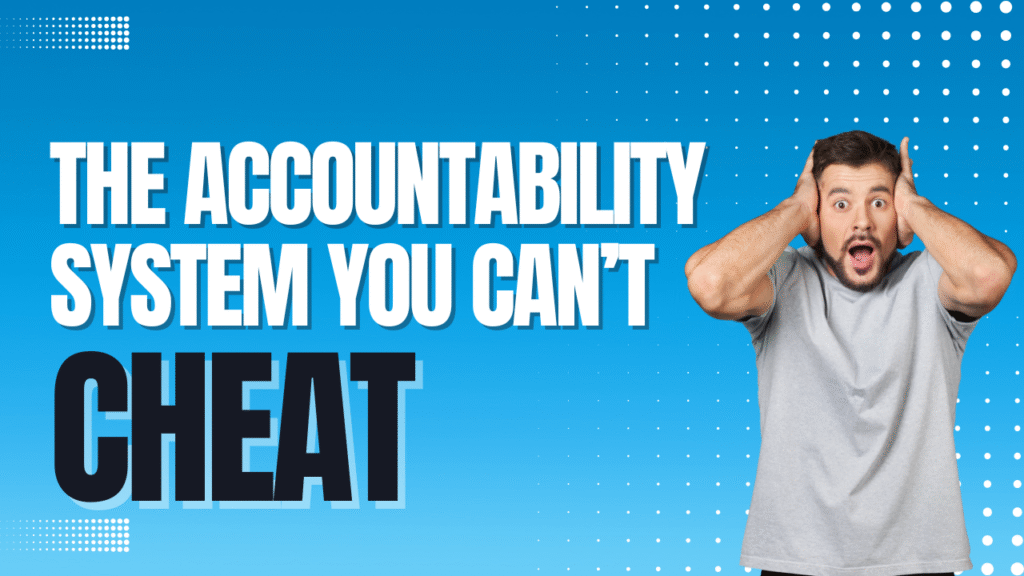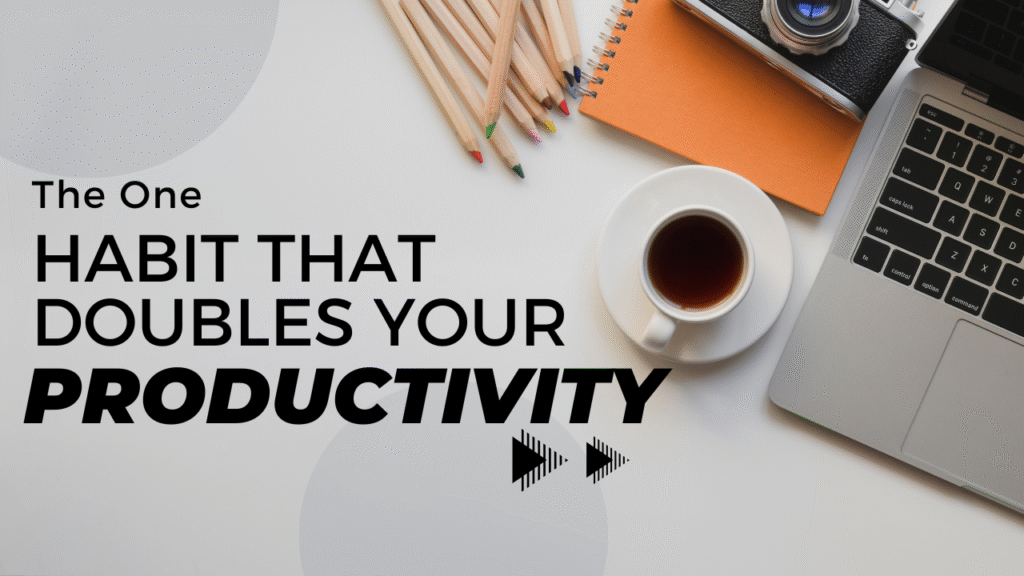Alright, let’s just get this out there — you’re clever. Too clever, actually. You’ve figured out every way to dodge the things you say you’ll do. You know your own escape routes like a thief knows every alley in the city. That little “I’ll start tomorrow” routine? You wrote the script. And honestly… you’ve gotten pretty good at it.
But here’s the problem. You’ve been using that cleverness against yourself. Which is kind of like handcuffing yourself to the couch and then wondering why you never make it to the gym.
What I’m about to give you is an accountability system you can’t cheat. And yes, you’ll try. Your brain will bargain, twist, and look for loopholes like it’s auditioning for a courtroom drama. But if you set it up right, there’s no escape hatch.
Why You’ve Been Able to Outrun Accountability So Far
First, a little honesty. Most “accountability systems” fail because they rely on your future self being more disciplined than your current self. Which, let’s face it, is like trusting your drunk self to “just have one more” at the bar. Future You isn’t a superhero — Future You is just Present You with a later deadline.
Maybe you’ve tried the buddy system before. You tell a friend your goal, they nod, you nod, and… nothing changes. Why? Because you picked a friend who won’t actually call you out. Or you gave them no real power to make you feel the consequences.
Accountability only works when cheating feels more uncomfortable than doing the thing you said you’d do.
Step One: Make It Public (and I Mean Really Public)
No, telling your cat doesn’t count. Neither does dropping a vague post on social media like, “Big things coming soon…” That’s not accountability — that’s fishing for encouragement without commitment.
You need to tell people who matter. People whose opinion actually matters to you. If they saw you back out, you’d feel it. Your boss. Your close friends. Your partner. The people who will look you dead in the eye and say, “So… what happened?”
Example? I once promised a group of colleagues that I’d deliver a project draft by Friday. Not “I’ll try.” Not “I’ll see how far I get.” Just — I will. The idea of facing that Monday meeting empty-handed was more horrifying than staying up late Thursday night to finish. And yes, I finished. Not because I was suddenly motivated… but because I hated the thought of breaking my word in front of them.
Step Two: Build Real Stakes
Here’s where most people flinch — you need consequences that actually sting. Not in a life-ruining way, but enough to make you hesitate before skipping.
If you say you’ll run three times a week, and you don’t, you send $50 to a cause you don’t support. Or you clean your roommate’s bathroom for a month. Or you wear that hideous neon sweater your aunt gave you to work for a day.
The key? The cost of failure has to be immediate and personal. If the consequence is far off or easy to swallow, you’ll ignore it.
Step Three: Daily Check-ins, Not Weekly
Weekly check-ins are accountability’s lazy cousin. Too much time to drift. Too much room for “I’ll catch up later.”
Daily check-ins keep you in the hot seat. Whether it’s a text to your accountability partner, a short voice memo, or a shared doc they can see — you show your work every single day.
It’s annoying. It’s repetitive. It works.
Step Four: No “All-or-Nothing” Loopholes
Here’s a nasty trick your brain plays: if you miss one day, it’ll tell you the streak is broken, so you might as well give up entirely. That’s quitting dressed up as logic.
Build your system to expect small failures. If you miss, you still check in — and you have to say why. No disappearing until you feel “ready” again. No perfect streaks required, just relentless reporting.
Because skipping the check-in is the real failure.
Step Five: Outsource the Tracking
Don’t rely on your memory to track your progress. Your brain is biased. It’ll conveniently “forget” the times you skipped or fudge the details to make you look better.
Use something external — a shared spreadsheet, a habit tracker app your partner can see, or even a wall calendar with giant red X’s. The more visible, the better.
Why This Works (Even When You Hate It)
This kind of accountability works because it hijacks your natural instincts. Most of us will put up with personal discomfort longer than public embarrassment. We’ll break promises to ourselves in private… but breaking them in front of someone we respect? That hits different.
And once you’ve built this system, the discomfort shifts. Doing the thing becomes the easier option than facing the fallout. That’s the sweet spot.
A Word of Caution
Don’t set this up with someone who’s just as flaky as you. Or someone you secretly resent. Accountability partnerships die fast if there’s no mutual respect — or worse, if they turn into passive-aggressive scorekeeping.
Pick someone you trust. Someone who can laugh when you stumble, but also won’t let you off easy.
One More Thing…
You’re going to want to tweak the rules to make them easier. Don’t. That’s your inner escape artist at work again. The second you loosen the grip, you’re back to slipping through the cracks.
If you do this — really do it — you’ll find something interesting happens. The more you stick with it, the less you need it. Not because you’ve suddenly become a different person, but because you’ve built a habit of showing up even when you don’t feel like it.
And that, my friend, is the kind of discipline you can’t fake.



